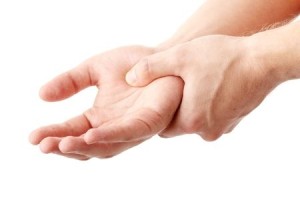Nerve damage in the hand can be painful and troubling. Nerve damage varies widely in its nature, but it is possible to improve nerve damage in the hand to some extent in the majority of cases. Below, we will take a look at the basics of nerve damage in the hand.
Causes of Nerve Damage in the Hand
Nerve damage in the hand can be caused by a variety of conditions, most commonly traumatic injuries to the wrist, hand, or finger. Some possible causes of nerve damage include:
- Cuts – Cuts may occur as kitchen injuries, yard work injuries, or as a result of falls or accidents.
- Crush injuries – If the hand is crushed in a motor vehicle accident or fall, nerve damage can occur.
- Burns – Burns can cause nerve damage. The severity of the damage will depend on how much of the hand was affected by the burn and how deep into the tissue the burn extended.
- Overstretching – An injury that causes the hand to be overstretched can damage nerves.
Symptoms of Nerve Damage
The nerves in the hand and wrist are responsible for moving the hand and for transmitting sensation in the hand to the brain. Damage to the nerves can result in trouble with any of these functions. If the motor nerves are damaged, you may experience weakness in the hand, or issues such as twitching or paralysis. If sensory nerves are damaged, you may experience pain, burning, numbness, or tingling. If both types of nerves are damaged, you may experience a combination of both types of symptoms.
Treatment to Improve Nerve Damage in the Hand
Most of the time, it is not possible to completely resolve the nerve damage. However, certain treatments can improve the symptoms associated with the nerve damage, and some degree of nerve regeneration may occur over time. Common treatments include:
- Rest – Resting the hand prevents further irritation and inflammation, which can contribute to the symptoms experienced with nerve damage.
- Immobilization – Immobilizing the hand with a brace or cast can allow the underlying injury that caused the nerve damage to heal. It also enhances hand rest.
- Physical therapy – Physical therapy can help restore flexibility and function to an injured hand, and may also relieve inflammation. The degree to which function can be restored depends on the individual injury. Even when it is not possible to restore complete function, occupational therapy can help you adapt to the changes in your hand.
- Surgery – In some cases, surgery is used. Surgery is normally used to treat the underlying injury. If nerves are being pinched, surgery can relieve pressure on the nerves.
If you would like to improve nerve damage in your hand, Dr. Howard Marans would be happy to hear from you. To schedule your consultation today, please click below and enter your information or all OC Orthopedic at (714) 979-8981.


